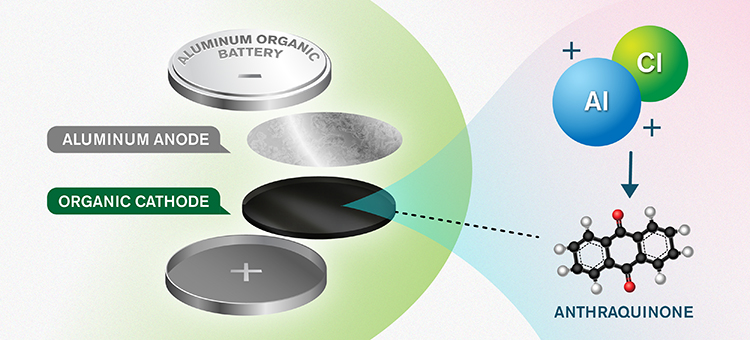From pv magazine global
Scientists from Sweden’s Chalmers University of Technology and Slovenia’s National Institute of Chemistry say they have created aluminum batteries with higher energy density and potentially wide renewable energy storage applications.
Compared to typical aluminum batteries, which use an aluminum anode and graphene cathode, the new device features an organic, nanostructured cathode made of carbon-based molecule anthraquinone.
In the paper Concept and electrochemical mechanism of an Al metal anode ‒ organic cathode battery, published in Energy Storage Materials, the researchers explained anthraquinone enables storage of positive charge-carriers from the electrolyte, ensuring their device has twice the energy density of conventional aluminum batteries. “Because the new cathode material makes it possible to use a more appropriate charge-carrier, the batteries can make better usage of aluminum’s potential,” the researchers stated.
Chlorine
The current version of the electrolyte, however, contains chlorine the research team wants to eliminate.
The scientists claim, although aluminum storage technology is a long way from commercial production, the new device will be able to compete or complement lithium-ion storage. “So far, aluminum batteries are only half as energy dense as lithium-ion batteries but our long-term goal is to achieve the same energy density,” stated the paper.
Aluminum in principle works better than lithium-ion as a charge carrier, according to the research group. “Furthermore, the batteries have the potential to be significantly less environmentally harmful,” said research co-author Patrik Johansson.
This content is protected by copyright and may not be reused. If you want to cooperate with us and would like to reuse some of our content, please contact: editors@pv-magazine.com.









By submitting this form you agree to pv magazine using your data for the purposes of publishing your comment.
Your personal data will only be disclosed or otherwise transmitted to third parties for the purposes of spam filtering or if this is necessary for technical maintenance of the website. Any other transfer to third parties will not take place unless this is justified on the basis of applicable data protection regulations or if pv magazine is legally obliged to do so.
You may revoke this consent at any time with effect for the future, in which case your personal data will be deleted immediately. Otherwise, your data will be deleted if pv magazine has processed your request or the purpose of data storage is fulfilled.
Further information on data privacy can be found in our Data Protection Policy.